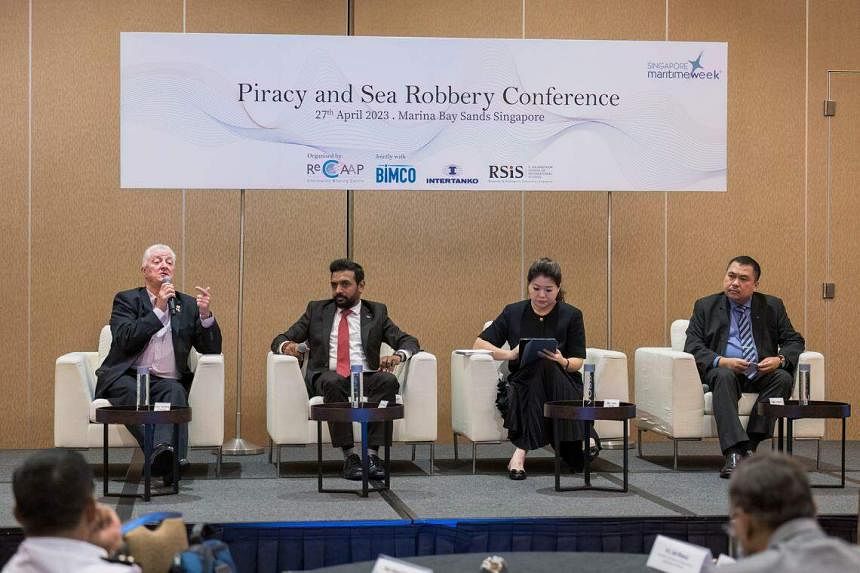Economic uncertainty in many parts of the world is likely to fuel a rise in piracy attacks in Asian waters, said experts.
Global crises like the Ukraine war, regional geopolitical tensions and high inflation are some factors driving people to commit piracy.
Admiral Artemio M. Abu, chairman of the Regional Cooperation Agreement on Combating Piracy and Armed Robbery against Ships in Asia Information Sharing Centre (Recaap ISC), said that amid these conditions, the shipping industry needs to adopt practices such as information reporting and collaborating closely with the maritime authorities – as part of efforts to protect crew and cargo.
During a discussion at an anti-piracy conference on Thursday at Marina Bay Sands, experts also touched on likely future trends of pirate attacks and what more could be done to eliminate the problem.
The conference was organised by the Singapore-based Recaap ISC, supported by international shipping association Bimco, the International Association of Independent Tanker Owners (Intertanko) and the S. Rajaratnam School of International Studies.
Adm Abu, in his opening address, said there were 25 incidents of armed robbery against ships in Asia between January and March.
He said: “This accounts for a 9 per cent increase over the same period last year. We urge the littoral states of the Singapore Strait to continue to enhance surveillance and enforcement, as all incidents had occurred in their internal waters, archipelagic waters and territorial seas.”
In the Singapore Strait, there were 18 piracy attacks between January and March – the same as that for the corresponding period in 2022, said a Recaap ISC report.
The total number of attacks in the Singapore Strait – one of the world’s busiest shipping lanes – hit a seven-year high of 55 cases in 2022. The vessels attacked included bulk carriers, tankers, and tug boats and barges.
During a panel discussion, the Singapore navy’s Maritime Security Task Force commander Augustine Lim said the attacks in the Singapore Strait occur mostly during the festive season and monsoons.
Colonel Lim said: “They usually target the bulk carriers and tankers as they are slower in speed, and the perpetrators often blend in with the fishing vessels, making it hard to identify them accurately.”
Mr Elfian Harun of Intertanko said industry players and the authorities can use information provided by Recaap ISC to coordinate patrols and look out for ships that are likely targets for pirates.





